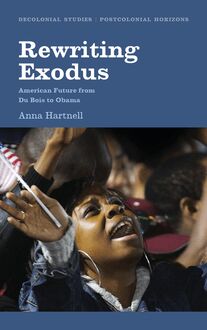The Politics of Islamophobia , livre ebook
108
pages
English
Ebooks
2013
Vous pourrez modifier la taille du texte de cet ouvrage
Obtenez un accès à la bibliothèque pour le consulter en ligne En savoir plus
Découvre YouScribe en t'inscrivant gratuitement
Découvre YouScribe en t'inscrivant gratuitement
108
pages
English
Ebooks
2013
Vous pourrez modifier la taille du texte de cet ouvrage
Obtenez un accès à la bibliothèque pour le consulter en ligne En savoir plus
Publié par
Date de parution
08 novembre 2013
Nombre de lectures
3
EAN13
9781849648745
Langue
English
Throughout the book, what emerges is that most of our knowledge of Muslim communities is apprehended through signifiers, as defined by 'liberal' politicians and media: there is the - aforementioned - maligned Muslim female, the ontically pure religious Muslim and the fundamentalist terrorist. Through study of instances where politicians - from Tony Blair and David Cameron, to Geert Wilders and Enoch Powell - activate these racist essentialisms we begin to see how Islamophobia takes form as an expression of racialised governmentality. By mobilising accounts across different national contexts, David Tyrer reveals how Islamophobia is defining relations between states and ethnicised minorities.
Acknowledgements
Prologue
1. Framing Islamophobia
2. Now you see me: fantasy and misrecognition
3. Once more, with feeling: Islamophobia and racial politics
4. Post-politics and Islamophobia
5. Democrat, Moderate, Other
6. Islamophobia beyond the war on terror
7. Questions, questions, questions: reframing Islamophobia
Notes
Index
Publié par
Date de parution
08 novembre 2013
Nombre de lectures
3
EAN13
9781849648745
Langue
English
The Politics of Islamophobia
Decolonial Studies, Postcolonial Horizons
Series editors: Ramón Grosfoguel (University of California at Berkeley), Barnor Hesse (Northwestern University) and S. Sayyid (University of Leeds)
Since the end of the Cold War, unresolved conjunctures and crises of race, ethnicity, religion, diversity, diaspora, globalization, the West and the non-West, have radically projected the meaning of the political and the cultural beyond the traditional verities of Left and Right. Throughout this period, Western developments in ‘international relations’ have become increasingly defined as corollaries to national ‘race relations’ across both the European Union and the United States, where the reformation of Western imperial discourses and practices have been given particular impetus by the ‘war against terror’. At the same time hegemonic Western continuities of racial profiling and colonial innovations have attested to the incomplete and interrupted institutions of the postcolonial era. Today we are witnessing renewed critiques of these postcolonial horizons at the threshold of attempts to inaugurate the political and cultural forms that decolonization now needs to take within and between the West and the ‘non-West’. This series explores and discusses radical ideas that open up and advance understandings of these politically multicultural issues and theoretically interdisciplinary questions.
Also available
Rewriting Exodus
American Futures from Du Bois to Obama
Anna Hartnell
The Dutch Atlantic
Slavery, Abolition and Emancipation
Kwame Nimako and Glenn Willemsen
Islam and the Political
Theory, Governance and International Relations
Amr G.E. Sabet
First published 2013 by Pluto Press 345 Archway Road, London N6 5AA
www.plutobooks.com
Distributed in the United States of America exclusively by Palgrave Macmillan, a division of St. Martin’s Press LLC, 175 Fifth Avenue, New York, NY 10010
Copyright © David Tyrer 2013
The right of David Tyrer to be identified as the author of this work has been asserted by him in accordance with the Copyright, Designs and Patents Act 1988.
British Library Cataloguing in Publication Data A catalogue record for this book is available from the British Library
ISBN 978 0 7453 3132 4 Hardback ISBN 978 0 7453 3131 7 Paperback ISBN 978 1 8496 4873 8 PDF eBook ISBN 978 1 8496 4875 2 Kindle eBook ISBN 978 1 8496 4874 5 EPUB eBook
Library of Congress Cataloging in Publication Data applied for
This book is printed on paper suitable for recycling and made from fully managed and sustained forest sources. Logging, pulping and manufacturing processes are expected to conform to the environmental standards of the country of origin.
10 9 8 7 6 5 4 3 2 1
Typeset from disk by Stanford DTP Services, Northampton, England Text design by Melanie Patrick Simultaneously printed digitally by CPI Antony Rowe, Chippenham, UK and Edwards Bros in the United States of America
I fy rhieni: diolch am bopeth
Fear is a bad advisor. Its companion is hate.
Aneurin Bevan
Contents
Acknowledgements
Prologue
1 Framing Islamophobia
What? Ham? Are you crazy?
De-essentialising Muslim identities
The political meaning of racism
Agency and the racialised
The vanishing point of race
2 Now you see me: fantasy and misrecognition
The void without
Honour among thieves?
Beyond fantasy
Beyond mistaken identities
3 Once more, with feeling: Islamophobia and racial politics
Two minutes between stops
Fear as a bad adviser
And they walk among us: Muslims as phobic objects
Irony and racism
4 Post-politics and Islamophobia
Politics and difference
Displacing the political
Prophets of doom
Post-politics, post-fascism?
Reframing Islamophobia and post-politics
5 Democrat, moderate, Other
Abjection and politics
Islamophobia and the politics of offence
Beyond displacement
6 Islamophobia beyond the war on terror
From exceptionalism to exception
Islamophobia and the postcolonial in a world without borders
Symbolic problems and indeterminate subjects
Constituting Muslims
7 Questions, questions, questions: reframing Islamophobia
Framing the Muslim question
Reframing the Muslim question
From Muslim question to Muslim policy
The Muslim question and Islamophobia
The tension of Islamophobia
Epilogue
Bibliography
Index
Acknowledgements
In Breakfast at Tiffany’s there is a scene in which, by way of explaining that writing is a slow process, Paul Varjak tells Holly Golightly, ‘Well, the idea is I’m not supposed to fritter my talent on little things. I’m supposed to be saving it for the big one.’ Those of us who lack the talent (and style) to waste or save just have to make do with what we’ve got and it makes a huge difference to have the support of an excellent editorial team. I therefore thank David Castle, Jonathan Maunder, Robert Webb and all at Pluto Press for their incredible support and advice, and Thérèse Wassily Saba for her expert copy-editing. I also wish to express gratitude to the series editors, Ramón Grosfoguel, Barnor Hesse and Professor S. Sayyid. I wish to thank Ian Law for reviewing the manuscript.
I am also indebted to a great many others who have in various ways contributed to my experience of writing this book. Katherine Harbord: thank you for the politics and the Politics, and for medicinal diversions over in HQ after a hard day’s teaching that you invariably made more enjoyable and stimulating. Gillian O’Brien: thank you for all the wisdom and intellectual stimulation you have shared, not to mention the odd bottle of Connemara Peated and the joys of ICSN. Rob Jones: thanks, mate! Gilda: I put the blame on Mame (Rita Hayworth says so), but thank you (teas, tattoos, proof-reading ...). Mike Benbough-Jackson: diolch yn fawr. The girl with the dragon tattoo: diolch yn fawr. Katy Pal Sian: I owe you an especially big thank you for everything. It would be remiss not to mention the infectious enthusiasm of Emily and John for bamboozling me with Aristotle and Anoximander, running, and tales of Paris life. When things got lost in translation, Amal Sheiko was a great help – dank je wel. A number of other people provided much needed moments of escape along the way that kept me fresh: you all know who you are, but thank you from the bottom of my heart. I need to thank colleagues at Liverpool John Moores University including Liz Sperling, to whom I am especially indebted, Helen Churchill, Joe Yates, Lucie Mathews-Jones, Lucinda Thompson, the history boys and all in HSS. Professors Nick White, Joe Sim, Steve Tombs, and Joe Moran always inspire those around them to retain their faith in academia and I am grateful for their support and encouragement. I wish to thank Amrit for friendship and intellectual generosity during the development of this project. Michaela: go raibh mile maith agait (there – I think I got it). Hussein Ali Agrama provided insightful comments as a discussant when some of these ideas were presented at a conference. I am also grateful to Frank Peter, Sarah Dornhof, Alexandre Caeiro, AbdoolKarim Vakil, Tina Patel, and Scott Poynting. Steve Lawler and Cheryl Connor put up with my analogue fascination for typewriters, old cameras and the obsolete, and kept me plugged into the matrix and on the straight and narrow (dammit), and for this I am grateful. I am indebted to the following people for providing hospitality and stimulating intellectual exchanges when they invited me to present at seminars and conferences: S. Sayyid, Shvetal Vyas, Gilbert Caluya, and Kam Kaur at the University of South Australia (who also published an early version of some of the themes in this book as an occasional paper); the organisers of the University of Salford Criminology Research Seminar Series; Tania Saeed and colleagues at St Antony’s College Oxford; Nina-Clara Tiesler and colleagues at ICS at the University of Lisbon; Elena Arigita and colleagues at Casa Arabe e Instituto Internacional de Estudios Arabes y del Mundo Musulman in Cordoba; and Frank, Andreas and Colleagues at the University of Bern. I have enjoyed and benefited from the opportunity to test some of these ideas in the Blackboard Jungle and through supervision, and thank students for always speaking back and keeping the beat going. I should thank those who have ensured the spirit is willing even when the flesh is weak; here a number of hostelries spring to mind for their sterling work. My greatest debt of gratitude is to my family for putting up with me while writing this book.
David Tyrer
May 2013
Prologue
All this happened, more or less
Kurt Vonnegut, Slaughterhouse Five
A s I write Lieutenant Columbo shuffles affably around the small screen, solving a murder in the movie industry in his own inimitable fashion. There is really no need to pay attention for it could be pretty much any one of sixty-nine different episodes which all hinge on similar logical devices in which befuddlement and harmless curiosity conceal what he really knows. The knowing at-stakeness of this kind of inquiry makes me mindful of the formulaic ways in which we tend to tell our tales, heavily reliant upon a set of stock character clichés and a reliable set of assumptions on which to base them. But as we wind towards the predictable climax of one of those and-now-what-I-brought-you-all-here-for moments when all will be revealed, I find myself more concerned with the rules of the game, and with the question of what happens when the conventions through which our tellings are organised are placed into question by the content of our tales.
We all tell our stories using certain vocabularies that are organised through grammars that establish rules to structure our narrations (Laclau 2000: 283). Most of the time this serves us well in putting into words, and integrating into memories, the events that occur as we go through life. But on rare oc







